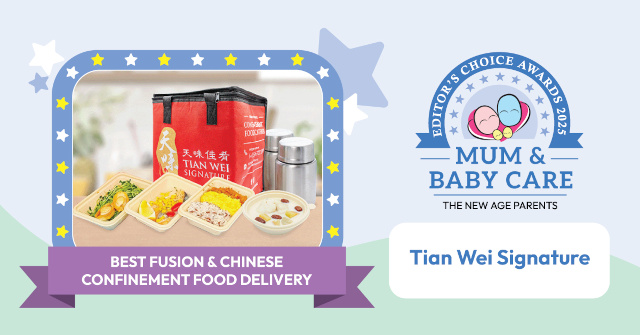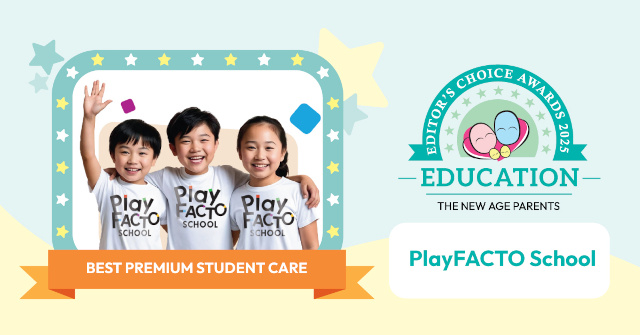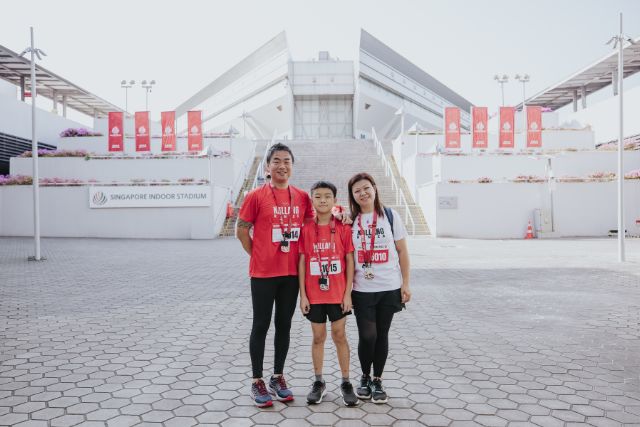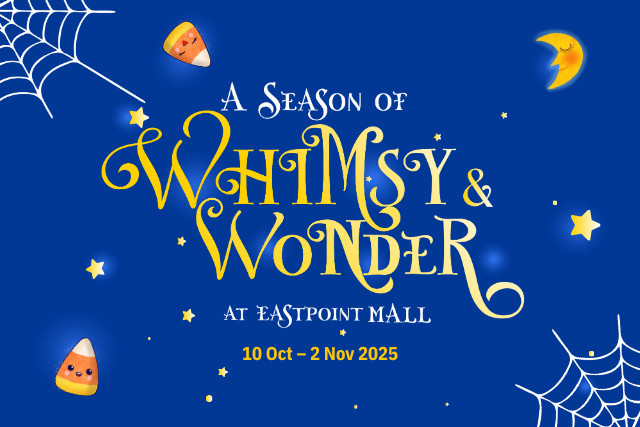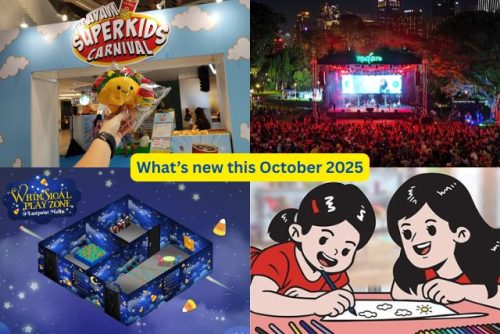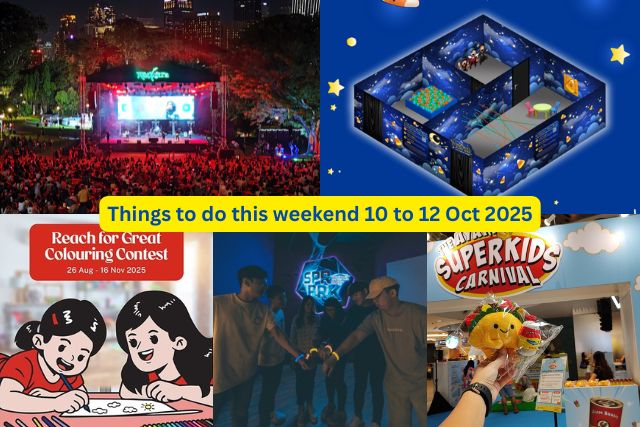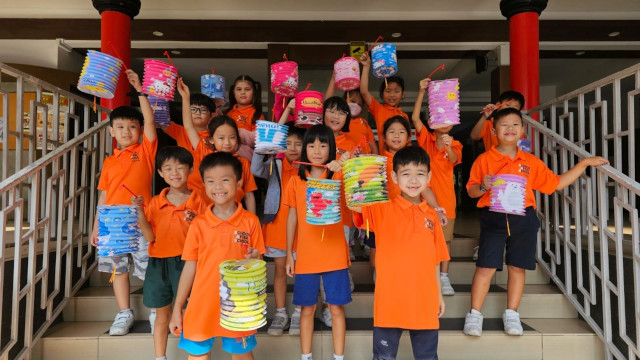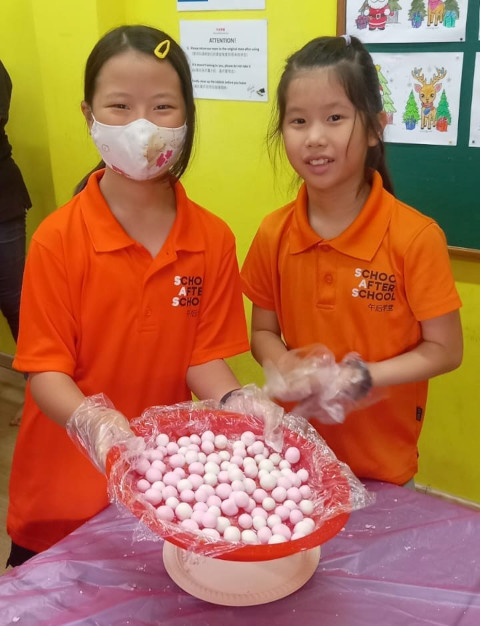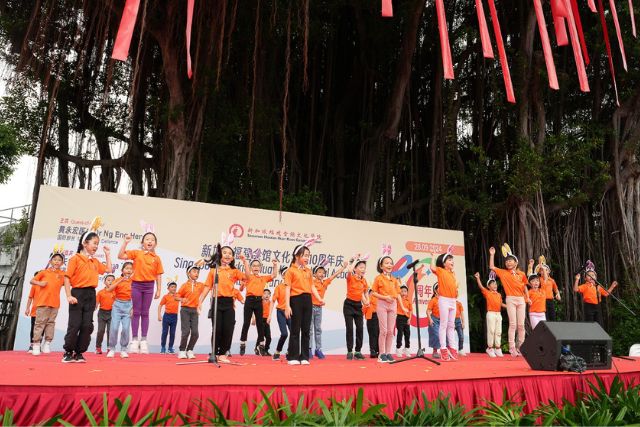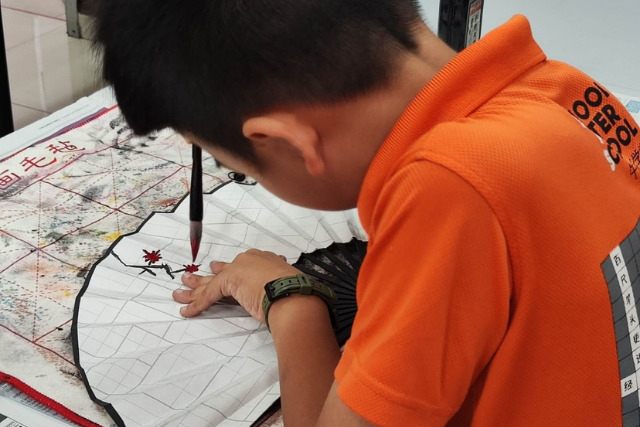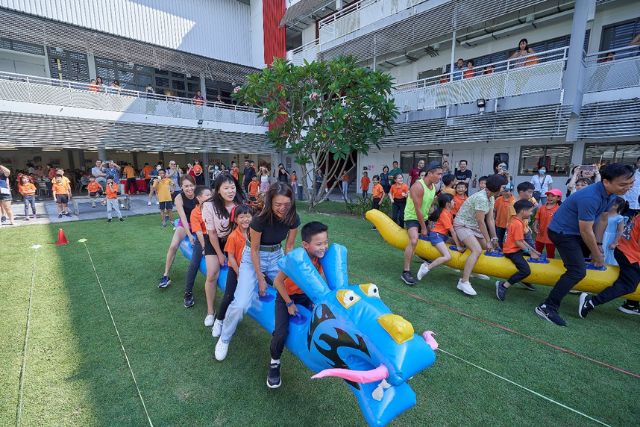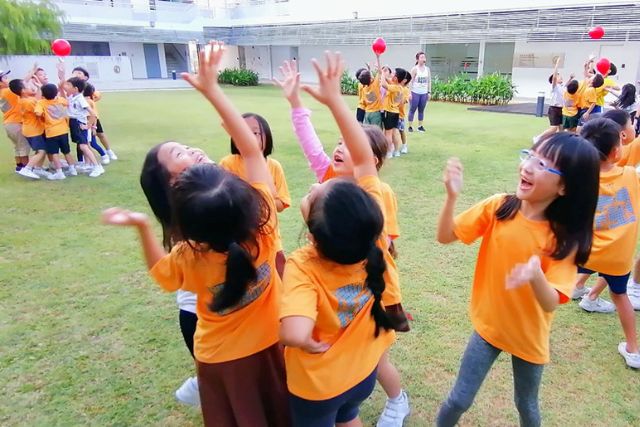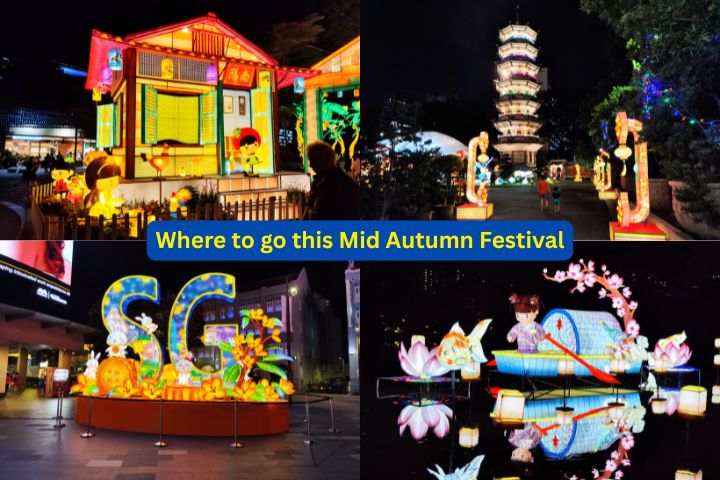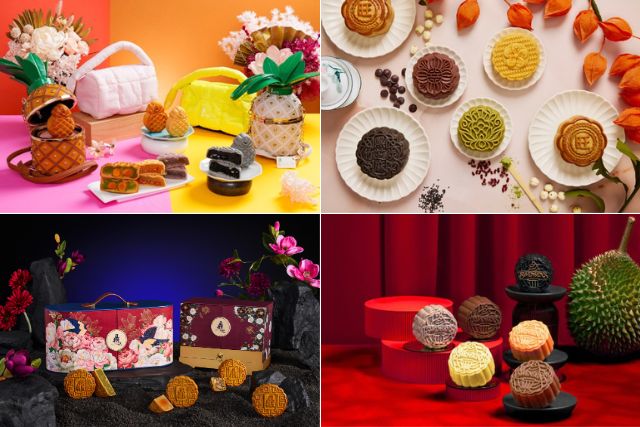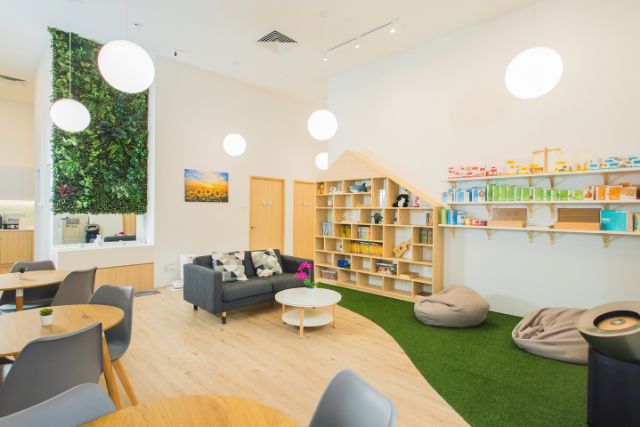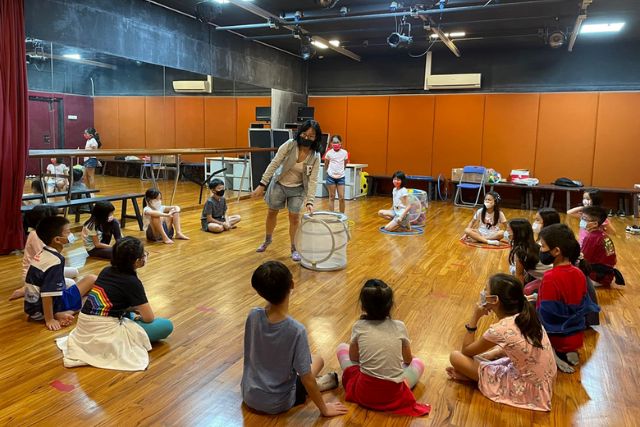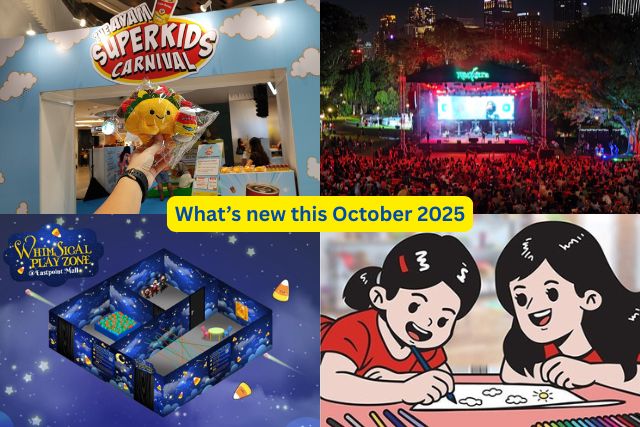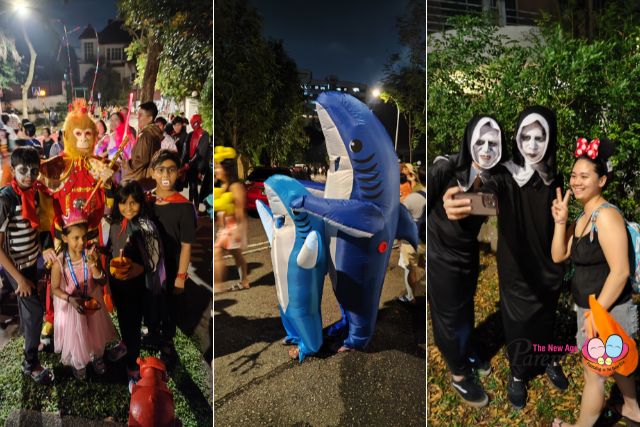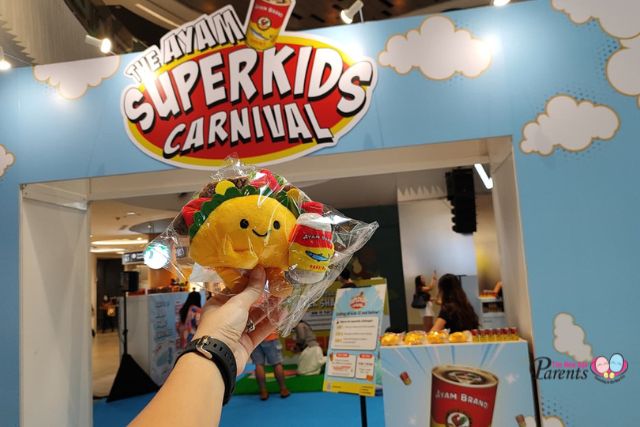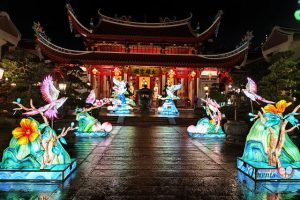When I stepped into 午后学堂SchoolAfterSchool, a student care launched by the Singapore Hokkien Huay Kuan Cultural Academy, one observation that struck me was hearing English and Mandarin being spoken from the classrooms.
This student care, which has won an award for being a top bilingual student care centre, showed me how children can be nurtured into confident and caring learners through Chinese culture that is lived, not just taught.
Regardless of the type of activity, the teachers intentionally infuse each class with Chinese language, heritage and values in an interactive manner.
Here’s what your child can look forward to in SchoolAfterSchool’s bilingual environment which covers the five areas of Character Development, Intellectual, Physical and Social Skills Development, and Aesthetic and Creative Cultivation.
1:30pm: Arrival, Lunch, Shower and Nap
After school, children arrive by school bus or with parents. They sign in, wash their hands, and sit down for a freshly cooked lunch. After lunch, the children take showers before heading to the nap room to rest quietly on foldable mattresses in a darkened space, air-conditioned and peaceful, which help them settle and recharge.
3:00pm: Homework and Quiet Focus
After their nap, children move to their desks to complete their homework. The centre maintains a strong teacher-child ratio, and the staff are all fluent in both English and Mandarin to provide homework support. Clearing their homework right after a good nap helps the children have a peace of mind to participate in the cultural activities later.
5:00pm: Enrichment Lessons to Build Character and Values
After tea break, children enjoy their enrichment lessons, which are carefully curated to make Chinese a living language and culture. Enrichment lessons range from speech and drama, calligraphy, art and craft, festive activities such as mooncake making and dragon boat races, and gardening.
When I visited SchoolAfterSchool, a Chinese Speech and Drama session was in progress with lower primary students sitting in a performance studio. They were enraptured by a recitation of a crow which loved to sing but faced criticism, yet in the midst of its sadness, it still decided to alert the other animals of a nearby fire.
After reciting the passage with the students to help them recognise Chinese characters and speak in the right tonality, the teacher went through each line using body movements, gestures, sounds to dramatise what happened in a visual and auditory manner.
She asked the students questions to prompt reflection and critical thinking, such as how the crow felt after being criticised, why the other animals criticised its singing, what could have started the fire, and what moral values they learnt from the crow’s altruistic behaviour.
The children were enthusiastic in putting up their hands and offering thoughtful and imaginative responses in Mandarin. The teacher expanded on the story to make the scenario more vivid, encouraging the children to act out parts of the passage using their voices and bodies, and learn empathy by putting themselves in the shoes of the crow. The session helped children link language with values—in this case, perseverance in the face of criticism, and caring for their fellow beings and the environment.
In another classroom, a calligraphy class was underway. Children dipped brushes into coloured ink and carefully painted cherry blossom trees on Chinese fans. Calligraphy teaches children to develop patience, discipline and creativity, and express themselves through art.
As part of the class, the teacher would explain the meaning of a related passage, the origin of its story, Chinese values such as filial piety and curiosity, and the symbolism of the accompanying pictures, while the children write calligraphic characters and paint their interpretation of the scene.
6:00pm: Outdoor Play
As the heat of the sun wanes, the children go out to play. SchoolAfterSchool provides a variety of outdoor activities such as archery, basketball, soccer and gardening. It also has multi-purpose halls for sports such as badminton and gym activities.
During this period, children are exposed to different sports and learn how to socialise while managing their emotions as part of winning and losing. They mingle with one another and are taught Chinese values such as teamwork, perseverance, learning from mistakes, and resilience as they strive to hit their goals.
What impressed me most was how Chinese values are not limited to being a part of homework but are also taught as part of living a healthy and meaningful life. Once a term, children take turns cleaning their classrooms. The teachers explain that caring for their shared environment helps build responsibility and respect.
During cultural festivals, Chinese heritage is celebrated with family. In the lead-up to the Dragon Boat Festival, children learn about its history and meaning behind the traditions, wrap rice dumplings, prepare performances and songs in Hokkien, and participate in dragon boat races with family.
| TNAP Awards 2025 (Edu) Spot & Win Icon: 🥦 (Broccoli) |
A Bilingual Environment for a Well-Rounded, and Well-Grounded Child
After the visit, I learnt that 午后学堂SchoolAfterSchool doesn’t just focus on helping children be well-rounded; it creates a bilingual environment to nurture them to be well-grounded too.
Besides ensuring children’s nutrition, rest and homework are taken care of, it focuses on building strong foundations—Chinese language and values, resilience, and interpersonal and social awareness.
From the wide variety of activities to the depth of Chinese culture embedded as its core curriculum, the staff care deeply about the children. Their interactions enable children to be confident in speaking up and learn Chinese as a living language.
If you are looking for a bilingual student care that lives and breathes bilingual knowledge and heritage, learn more about SchoolAfterSchool at Toa Payoh & Sennett via shhkca.com.sg/after-school-care and @schoolafterschoolsas.
Brought to you by Singapore Hokkien Huay Kuan Cultural Academy’s SchoolAfterSchool.
By Julia Chan.
The New Age Parents – TNAP Awards 2025
Congratulations to Singapore Hokkien Huay Kuan Cultural Academy’s SchoolAfterSchool for being the winner of TNAP Awards 2025 (Education) – Best Bilingual Student Care Centre.
Find out who the other winners of the TNAP Awards 2025 (Education) are here!
The New Age Parents – TNAP Awards 2025 (Education) Spot & Win Contest
Ready to snag some enticing prizes? Wait no more! Get in on the action with our The New Age Parents Awards 2025 Spot & Win Contest for a shot at winning. Head over to the TNAP Awards 2025 (Education) Spot & Win Contest to join in. Best of luck!
* * * * *
Looking to reach over 100,000 parents in Singapore? Let us amplify your message! Drop your contact details here, and we’ll reach out to you.
Discover exciting family-friendly events and places to explore! Join our Telegram channel for curated parenting recommendations.




